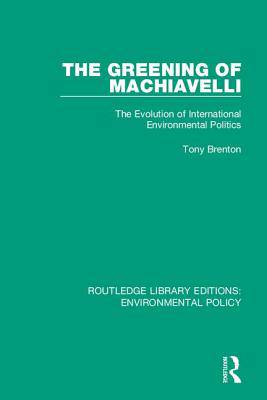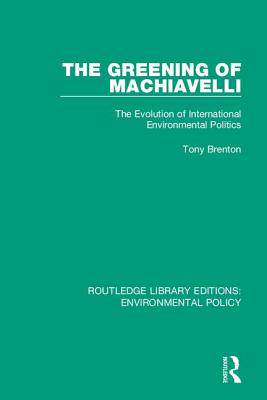
- Retrait gratuit dans votre magasin Club
- 7.000.000 titres dans notre catalogue
- Payer en toute sécurité
- Toujours un magasin près de chez vous
- Retrait gratuit dans votre magasin Club
- 7.000.0000 titres dans notre catalogue
- Payer en toute sécurité
- Toujours un magasin près de chez vous
Description
First published in 1994. Environmental issues present a daunting challenge to the international system. The destruction of the tropical rainforest, the Chernobyl explosion and the ozone layer 'hole' all underline the transnational nature of environmental threats and the need for states to act together in order to tackle them. How have such environmental issues entered political agendas in different parts of the world and how has that affected national positions? Can governments ever reconcile their own national interests with the international cooperation needed to deal with transboundary issues such as climate change?
This book traces the history of international environmental negotiations and regulations and looks at the domestic policies upon which cooperation in the international community depends. It covers some major milestones in recent history, from the Torrey Canyon accident through to the Rio 'Earth Summit' and the emergence of the European Community as a major international environmental actor. It also looks at cross-cutting issues such as the role of non-governmental organizations, the environmental impacts of world agriculture and trading arrangements, industry's attitudes, and the relationship between democracy and environmental protection. It concludes by examining how the international system has adapted, and may adapt further, to deal effectively with environmental problems, and reflects on the implications of this for the future.
Spécifications
Parties prenantes
- Auteur(s) :
- Editeur:
Contenu
- Nombre de pages :
- 302
- Langue:
- Anglais
- Collection :
- Tome:
- n° 4
Caractéristiques
- EAN:
- 9780367221249
- Date de parution :
- 08-04-19
- Format:
- Livre relié
- Format numérique:
- Genaaid
- Dimensions :
- 156 mm x 234 mm
- Poids :
- 603 g

Les avis
Nous publions uniquement les avis qui respectent les conditions requises. Consultez nos conditions pour les avis.






